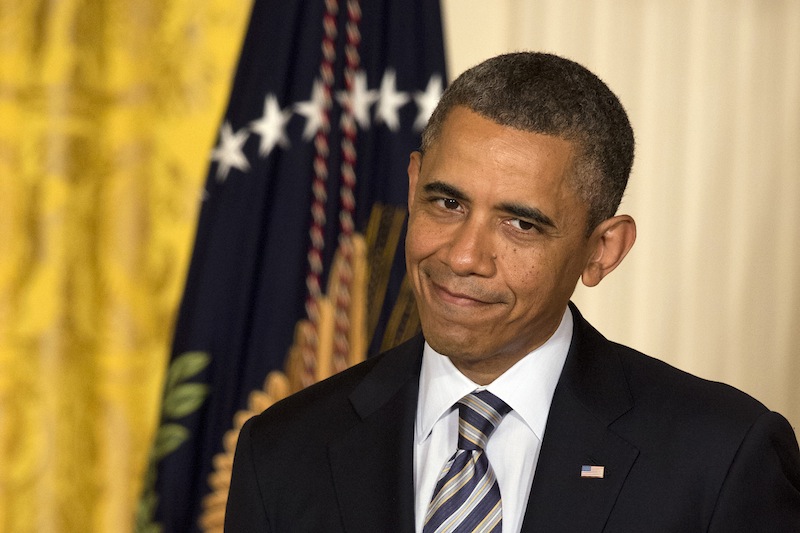Republicans are convinced that the Affordable Care Act will sink Democrats, but there’s little evidence that the law’s bumpy rollout has caused a shift in public opinion.
Quite simply, polling looks virtually the same as it did before the law’s glitch-filled launch became the subject of congressional hearings and the butt of late night and country music jokes.
Consider Gallup’s findings released last week. In a poll conducted Oct. 26-28 — weeks after the troubled website HealthCare.gov went live on Oct. 1 — 44 percent of Americans said they approved of the law while 47 percent said they disapproved.
Those numbers differ only slightly from Gallup’s poll conducted Oct. 18-20, which found 45 percent approving of the law and 50 percent disapproving.
Both polls actually indicated a minor bump in support since August, when Gallup showed 41 percent approving of the law and 49 percent disapproving.
Gallup isn’t the only pollster to show such consistency. A CNN poll that was conducted Oct. 18-20 showed a big majority — 56 percent — opposed to the health care law. But that’s a negligible change from CNN’s poll in September that showed 57 percent opposed. And support even ticked up slightly during that span, from 38 percent to 41 percent.
The Kaiser Family Foundation, which tracks public opinion on the law every month, showed 43 percent with an unfavorable opinion of Obamacare in mid-September, while 39 percent said they had a favorable opinion of the law. Kaiser’s survey conducted Oct. 17-23 showed essentially the same: 44 percent opposed, 38 percent in support.
The Washington Post/ABC News poll that was conducted Oct. 17-20 found 46 percent in support of the law and 49 percent opposed. A September WaPo/ABC survey showed 42 percent supporting Obamacare and 52 percent opposing.
A Reuters/Ipsos web survey conducted during the month of October actually found support for the Affordable Care Act inching up from 44 percent in September to 47 percent with opposition dipping from 56 percent to 53 percent. Among uninsured respondents, Reuters/Ipsos showed support rising from 37 percent to 44 percent, with opposition dropping from 63 percent to 56 percent.
The stability of the numbers suggests that the embarrassing rollout has done little to exacerbate the law’s popularity. Opposition to the Affordable Care Act remains fairly widespread — just as it has been since President Barack Obama signed it into law in 2010.
But with the website experiencing technical problems, individuals being forced to change their insurance and reports of disappointing enrollment numbers, Republicans are licking their chops at the prospect of tying Democrats to the law’s launch.
Sen. Lindsey Graham (R-SC), who’s facing re-election next year, boasted last month that Obamacare will be “the political gift that keeps on giving.”
The strongest piece of evidence that the law’s rollout has driven up opposition came in a NBC News/Wall Street Journal poll that was conducted Oct. 25-28 and showed 47 percent calling Obamacare a “bad idea,” a four point jump from September. Thirty-seven percent called the law a “good idea” in the October NBC/WSJ survey, virtually unchanged from the 38 percent who said the same in September.
A tighter-than-expected Virginia governor’s race made the GOP even more confident that Obamacare is a political winner, with many on the right insisting that Republican Ken Cuccinelli may have emerged victorious had he spent more time bashing the law.
But as the Washington Post’s Ezra Klein noted Wednesday, evidence for that claim is also thin.






